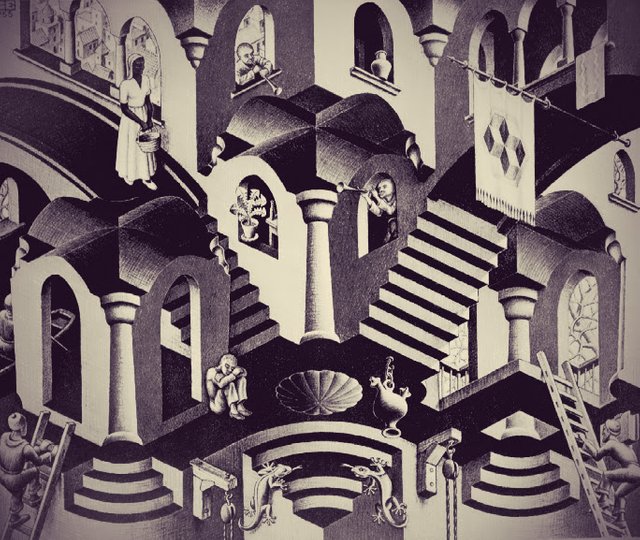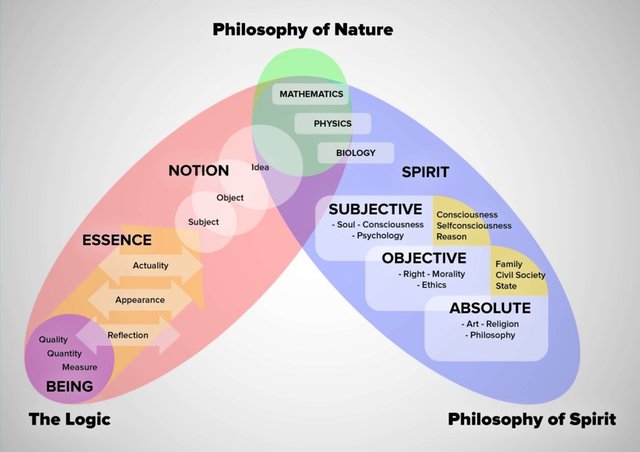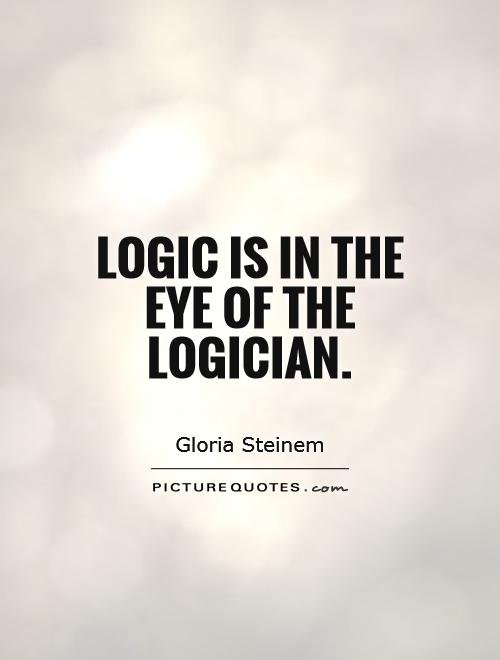The Logic of Hegel's Phenomenology
The Logic of Hegel's Phenomenology

Image Source
Hegel's Phenomenology is a science of the experience of consciousness that is additionally a remaking of our historical–philosophical experience as individuals from a modern judicious group. The phenomenological experience of consciousness goes through self-consciousness, theoretical and practical reason, and diverse historical versions of spirit, from Greek artifact, medieval Christianity, to Enlightenment culture and modern average society. The phenomenological travel comes full circle with what Hegel calls absolute knowing – a knowing incorporating this entire development from consciousness and self-consciousness to reason and self-knowing spirit.
We achieve absolute knowing when we perceive that immediate intuition – the sense-certainty with which we started – surmises the entire complex phenomenological history of spirit coming to know itself. It is in this sense the Phenomenology of Spirit was proposed as a prologue to Hegel's speculative framework. When we have crossed this phenomenological way, we accomplish a level that empowers us to leave upon speculative philosophy proper. Phenomenology along these lines empowers us to move to the level of pure conceptual thinking, speculative logic that explains the essential classifications of thought.
Hegel's logic is forbiddingly troublesome. Nonetheless, Hegel proposed it to be understandable on a fundamental level to every sound person who fancy philosophical comprehension of the straight out structure of self-cognizant subjectivity, of the various types of modern social and political organizations, and of the three social types of absolute spirit giving our cognitive self-reflection. While banter about still furies over the genuine significance of Hegel's logic, the least difficult approach to depict it is as an investigation of interconnected frameworks of fundamental classes of thought.
Not at all like formal logic, which considers the logical relations amongst suggestions and the formal principles of substantial argumentation, Hegelian logic examinations the arrangement of fundamental classifications of thought as methods for conceptualizing reality as a cognizant and comprehensible entirety. In this sense, Hegel radicalizes Kant's transcendental logic, which intended to depict the logical relations between classifications that give the states of probability to our subjective cognitive experience. For Hegel, this transcendental logic must be changed into a speculative logic that demonstrates the intrinsic improvement of classes in a logical sequence or interconnected example.

Image Source
These classes are enunciated inside three interconnected frameworks, each showing its own sequence of improvement. The three noteworthy clear cut frameworks Hegel portrays are the logic of being, which capacities through a logic of progress between classes; the logic of essence, which shows a logic of reflection, of resistance and division, between its classifications; and the logic of the Concept, which reveals a logic of characteristic self-advancement between interconnected classifications – a logic that thusly incorporates components of the past two downright frameworks.
This development from the logical frameworks of being, to essence, to Concept, includes the entire of speculative logic, which additionally gives a logical rendition of the history of metaphysics from Greek cosmology, through substance metaphysics, to modern subject-metaphysics and speculative philosophy. This gigantically aspiring philosophical venture stays petulant, and is even much of the time neglected in contemporary readings of Hegel. Nonetheless, Hegel's logic should give the basic structure to all his "Realphilosophie" or philosophy of the genuine, that is, his philosophy of nature and philosophy of subjective spirit.
In fact, the classes of speculative logic additionally stay at play inside Hegel's philosophy of the social world, of workmanship, of history and of politics. Aristotle broadly characterized logic as "thought thinking itself". Hegel takes this knowledge – alongside Kant's transcendental logic, the logic of classifications that make conceivable our experience – and builds up a record of the essential classes of thought in their characteristic relations and consecutive advancement inside unmistakable all out frameworks. Be that as it may, where might such a speculative logic start? It must be with the most essential class of thought, the one that enables us to start without presuppositions. Why without presuppositions?
Since Hegel needs to move past the ungrounded character of Kant's deduction or avocation of the classifications, since Kant was condemned for essentially assuming control over Aristotle's table of classes without legitimizing these or demonstrating their logical interconnection. In addition, Hegel abstains from surmising without inherent legitimization the laws of thought assumed by formal logic, in particular that all thought must comply with the laws of identity and non-inconsistency. Indeed, even the most fundamental laws and standards of thought must be grounded and defended in regard of an absolutely insignificant presupposition. Speculative logic will in this manner endeavor to display a self-establishing arrangement of absolute relations, without presuppositions, that will form into a normally associated totality of thought determinations.

Image Source

Hi! This is a good post. You may be interested in a new project that has been started to help minnows further: Minnows Accelerator Project [Reward Share and 200 SP Delegated][August 2017 Signups]. If you choose to participate please mention that @robertvogt referred the Minnows Accelerator Project to you. If you have already participated in this contest please disregard this comment. Cheers!
amazingly, Hegel was one of the few philosophers i never read much of during my undergrad work. i really need to bone up on his stuff.
I could agree that stuff like this are rather interesting.
This is almost as hard to understand as Hegel himself. Please simplify! Use examples! Avoid jargon! I've been doing philosophy for most of my life and I can hardly make any sense out of this!